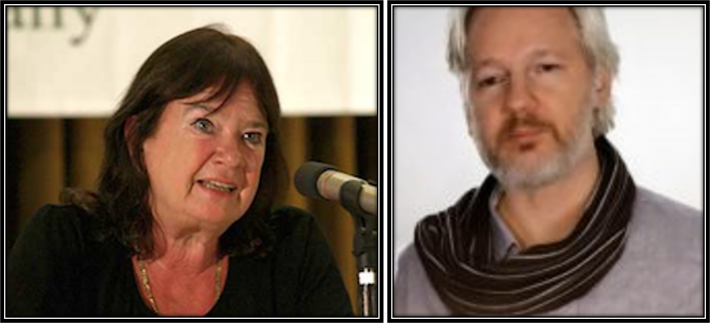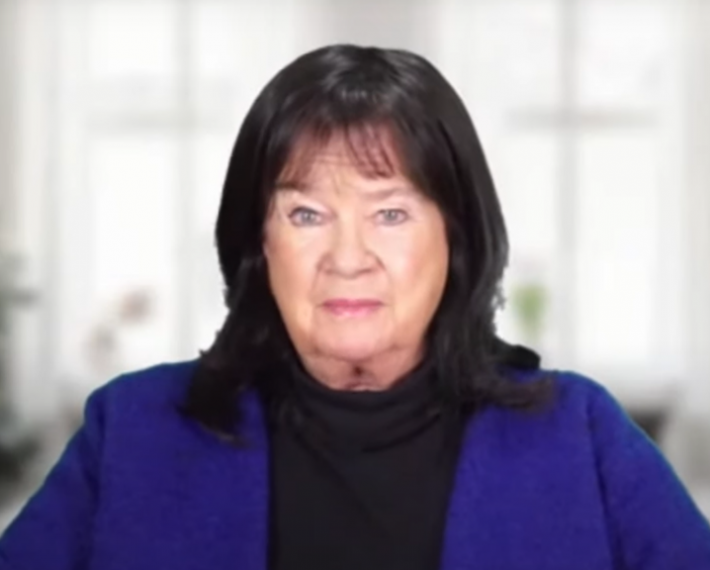| Daud Azimi | Afghanistan/Germany | Dipl. Ing. (Engineer); Board Member, Peace National Front of Afghanistan |
| Tse Anye Kevin | Africa | Vice President, State 55, Afrika |
| Enrique Juan Box | Argentina | Social communicator |
| Roberto Fritzsche | Argentina | Professor, Dep’t of Economic Science, University of Belgrano |
| Carlos Perez Galindo | Argentina | Lawyer |
| Rubén Darío Guzzetti | Argentina | Argentine Institute of Geopolitical Science |
| Gustavo Russo | Argentina | Lawyer; Professor of Juridical Sciences |
| Trudy Campbell | Australia | Northern Territory secretary, Australian Citizens Party |
| Christian Dierick | Belgium | Manager, Big Science Technology Club & Lead Energy Expert |
| William Lindo | Belize | Executive member, Peoples United Party |
| Edwin Alfonso De La Fuente Jeria | Bolivia | Former Commander in Chief of the Bolivian Armed Forces |
| Osman Vladimir Escobar Torrez | Bolivia | Human Rights Secretary, Bolivian Labor Confederation (COB) |
| Max Yecid Ibañez | Bolivia | Former Secretary of Grievance Resolution, National Federation of Electrical and Telephone Workers of Bolivia |
| Jairo Dias Carvalho | Brazil | Professor, Philosophy of Technology, Federal University of Uberlândia |
| Lilian Simone Godoy Fonseca | Brazil | Professor of Philosophy, UFVJM, Diamantina campus |
| Gabriel Tincani Ramos | Brazil | President, Union of Socialist Youth — Campinas |
| Renata Welinski Da Silva Seabra | Brazil | ESG Consultant; Former UNDP Executive Director for UN Global Compact Brazil; author, “A Regulamentação International Ambiental e a Responsabilidade Corporativa” |
| Julian Fell | Canada | Former Director, Regional District of Nanaimo |
| Dimitri Lascaris | Canada | Lawyer; Peace activist |
| Mario Guillermo Acosta Alarcón | Colombia | Scientist and writer; General Director, CIFRA (Space Lab City) |
| Fernando Duque Jaramillo | Colombia | Lawyer; Master’s degree in Political Science |
| Pedro Rubio | Colombia | Union leader; public policy analyst |
| Enrique García Dubon | Costa Rica | Economist |
| Enrique Ramírez Guier | Costa Rica | Biologistç consultant |
| Tom Gillesberg | Denmark | President, Schiller Institute Denmark |
| Pernille Grumme | Denmark | Actress; peace activist; former Chair, Artists for Peace, Denmark |
| Alcibiades Jose Abreu | Dominican Republic | University professor of mathematics, English and French |
| Alexis Joaquin Castillo | Dominican Republic | Presidential candidate of Alianza Nueva República. Lawyer; former Prosecutor of the National District |
| Ramón Emilio Concepción | Dominican Republic | Attorney at Law, Presidential Pre-candidate for the PRM party (2020) |
| Ramon Cruz Placensia | Dominican Republic | Former Dean of the Faculty of Engineering of the Universidad Autónoma de Santo Domingo (UASD) |
| Luis De León Ferreira | Dominican Republic | President of Fuerza Boschista. Educator, university professor at Universidad Autonoma de Santo Domingo (UASD). Politician |
| Marino J. Elsevyf Pineda | Dominican Republic | Attorney at Law; notary |
| Enrique Garcia Frometa | Dominican Republic | Industrial engineer, master’s degree in public administration, appraiser and planner |
| Ramón Gross | Dominican Republic | Post-graduate Professor, Catholic University of Santo Domingo |
| Dantes Ortiz Nuñez | Dominican Republic | Historian; Professor of History, Autonomous University of Santo Domingo |
| Oscar Daniel Pérez Quiroz | Dominican Republic | Theologian and Psychologist |
| Domingo Reyes | Dominican Republic | Former professor of economics, Ph.D. in Higher Education |
| Rafael Reyes Jerez | Dominican Republic | Journalist; TV producer, “cara a cara” |
| Enrique Antonio Sánchez Liranzo | Dominican Republic | Lawyer, author, poet |
| Caonabo Suarez | Dominican Republic | Poet; Member of the Coordinating Committee of the Institute for Analysis and Conclusions (INAC), Dominican Republic |
| Patricia Merizalde | Ecuador | Founder and President, International Feminist Poetry Movement, “Women’s Flight” |
| Ernesto Pazmiño Granizo | Ecuador | Human Rights lawyer; university professor; former General Public Defender of Ecuador; former Vice-President, Justice Center of the Americas |
| Alexis Ponce | Ecuador | Rights advocate, National Association of Patients and Vulnerable Families of Ecuador |
| Napoleon Saltos Galarza | Ecuador | University professor; Member of Parliament (1996-1998), Quito |
| Jacques Cheminade | France | President, Solidarité et Progrès; former presidential candidate |
| Dr. jur. Wolfgang Bittner | Germany | Author |
| Joachim Bonatz | Germany | Vice President, East German Board of Trustees of Associations (Ostdeutschen Kuratoriums e.V.) |
| Dr. Ole Doering | Germany/China | Professor, Hunan Normal University, China |
| Johannes Posth | Germany | General Director, Deutsche Telekom in Ukraine, starting 1996; head, Ukrainian-European Policy and Legal Advice Center, 2002-2005 |
| Dr. Rainer Sandau | Germany | Technical Director, Satellites and Space Applications, International Academy of Aeronautics (IAA) |
| Takis Ioannides | Greece | Ambassador of Peace, Hon. Dr Literature, historian, researcher, poet. |
| Dr. Maria Arvanti Sotiropoulou | Greece | Representative, Greek Medical Assoc. for the Protection of the Environment and Against Nuclear and Biochemical Threat (GMA), Greek affiliate of Internat’l Physicians for the Prevention of Nuclear War (IPPNW) |
| Raul Anibal Marroquin Casasola | Guatemala | Coordinator of the Citizen Observatory for Peace “La pupila del cielo”, San Cristobal, Verapaz, Guatemala. |
| Otto Rene Quiñones Carias | Guatemala | Former Legislator (1991-1993); President, Board of Directors of Alternate Deputies |
| Beatriz Solórzano León | Guatemala | Licentiateç Parliamentary Technician, Congress of Guatemala |
| Ahmadou Diallo | Guinea/United States | Senior Member, Guinean American League of Friends for Freedom In. |
| Mamadu Djalo | Guinea/United States | Secretary, Guinean American League of Friends for Freedom Inc. |
| Khemraj Ramjattan | Guyana | Leader, AFC (Alliance for Change) |
| Donald Ramotar | Guyana | Former President of Guyana |
| Oscar Abraham Lanza Rosales | Honduras | Industrial engineer, retired; columnist for La Tribuna, Honduras |
| Andrea Szegó | Hungary | Professor (ret.), economics |
| Dr. Balkrishna Kurvey | India | President, India Institute for Peace, Disarmament, and Environmental Protection |
| Maurizio Abbate | Italy | Chairman of ENAC, National Institute for Cultural Activities, Italy, |
| Angelo Aiello | Italy | Former sport director of AC Milan |
| Prof. Bruno Brandimarte | Italy | Professor (ret.), Applied Biophysics, Univ. of Rome, Tor Vergata |
| Renato Corsetti | Italy | Prof. emeritus; Chair, Progressive Esperanto Speakers |
| Jorge Flores | Italy | Poet |
| Liliana Gorini | Italy | Chairwoman of Movisol |
| Antonio Ingroia | Italy | Former candidate for Italian Prime Minister |
| Nicola Lista | Italy | Chairman, youth organization of MDC, (Movement in Defense of the Citizen) |
| Enzo Pennetta | Italy | Organizer, referendum to end Italian military aid to Ukraine |
| Vincenzo Romanello | Italy | Senior Nuclear Researcher and Project Manager, National Radiation Protection Institute (SURO) |
| Alessia Ruggeri | Italy | Trade unionist |
| Daisuke Kotegawa | Japan | Former Executive Director for Japan, IMF; former Japan Ministry of Finance official |
| Pastor James Adundo | Kenya | Christian Outreach Ministry |
| Pastor Amos Nyambok | Kenya | Christian Outreach Ministry |
| Pigbin Odimwengu | Kenya | Youth political party leader |
| Pastor George Outa | Kenya | Christian Outreach Ministry |
| Mohd Peter Davis | Malaysia | Biotechnologist; biochemist; architect; consultant, deep tropical agriculture; Visiting Scientist, University Pertanian (retired) |
| Chandra Muzaffar | Malaysia | Founder and Director, International Movement for a Just World (JUST); Co-founder, Saving Humanity and Planet Earrth (SHAPE) |
| Adam Ouologuem | Mali | Journalist, Mali/Washington D.C. |
| Angel Coronel Beltrán | Mexico | Former Research Profesor, Physics REsearch Department, University of Sonora (UNISON) |
| Maria de los Ángeles Huerta | Mexico | Former Congresswoman |
| Dr. Enrique López Ochoa | Mexico | Angiologic Surgeon; Professor of Angiology, University of Sonora (UNISON) School of Medicine |
| Tenit Alfonso Padilla Ayala | Mexico | Professor of Effective Communication, Technological Institute of Sonora |
| Jaime Varela Salazar | Mexico | Former Director, School of Chemical Sciences, University of Sonora (UNISON) |
| Alex Krainer | Monaco/Croatia | Author, “Grand Deception: The Truth about Bill Browder, the Magnitsky Act, and Anti-Russian Sanctions” |
| May-May Meijer | Netherlands | Chair and Founder, Peace SOS |
| C. (Kees) le Pair | Netherlands | Physicist (ret.), University of Leiden; Royal Netherlands Academy of Arts and Sciences |
| Djamila le Pair | Netherlands | Freelance journalist; Free Assange activist |
| Mykeljon Winckel | New Zealand | Founder, Voice Media |
| Bolívar Téllez | Nicaragua | Lawyer and university professor, Nicaragua |
| David Ajetunmobi | Nigeria | Trade union leader, auto sector |
| Adeshola Kukoyi | Nigeria | Founder, Equilibrium Perspectives in Learning and Development/University of Lagos |
| Manuel Hidalgo | Peru | PhD in Accounting and Business Sciences; Professor at Universidad Mayor de San Marcos, Lima, Perú |
| Herman Tiu (Mentong) Laurel | Philippines | Founder, Philippine BRICS Strategic Studies think tank; TV and radio commentator; organizer, movement vs. new U.S. military bases in the Philippines |
| Leo Semashko | Russian Federation | Gandhian Global Harmony Association |
| Earl M. Bousquet | St. Lucia | Veteran Pan-Caribbean journalist/columnist; Editor, Voice of St. Lucia newspaper; President, St. Lucia-China Friendship Assoc.; Chair, St. Lucia Nat’l Reparations Cttee |
| Natasa Milojevic | Serbia | Political scientist; former Member of Parliament |
| Meshack Moxongo | South Africa | Leader, LaRouche South Africa |
| Princy Mthombeni | South Africa | Spokesperson, Africa4Nuclear |
| Ishmail Phali | South Africa | Member, LaRouche South Africa; member, Democratic Alliance – South Africa |
| Motutla Juda Phali | South Africa | Member, LaRouche South Africa |
| Hyung-Joon Won | South Korea | Violinist; Founder and Director, Lindenbaum Festival Orchestra; organizer, North and South Korean peace concerts |
| Juan Carrero Saralegui | Spain | President, Fundació S’Olivar; peace activist |
| Juan Jose Torres Nunez | Spain | Poet, published author, freelance journalist |
| Dr. George Mutalemwa | Tanzania | Global Peace Studies for Sustainable Development; Africa Peace and Development Network (Mtandao wa Amani na Maendeleo Afrika (MAMA) |
| Bishop Lubega Geoffrey Bob | Uganda | Minister |
| Ruslan Kotsaba | Ukraine | President, Ukrainian Movement of Pacifists |
| David Dabydeen | United Kingdom/Guyana | Professor; former Guyanese Ambassador to UNESCO and China |
| Bernie Holland | United Kingdom | Soka Gakkai International |
| P. D. Lawton | United Kingdom | Editor, African Agenda.net |
| Dr. Athar Abbasi | United States | Mayor (ret.), U.S. Army |
| Muhammad Salim Akhtar | United States | National Director, American Muslim Alliance (AMA) |
| Bernard Allen-Bay | United States | CEO, Project Funding Consultants; Vice President, Oklahoma NAACP |
| David Andersson | United States | Co-Director Pressenza IPA |
| Deborah Armstrong | United States | Journalist |
| Dr. Elena Bajenova | United States | Creator and Organizer, Anti-War Coalition Group, Arlington, TX; President, Russian International Culture Center |
| Col. Richard Black (ret.) | United States | Former Virginia State Senator and Delegate; former head, U.S. Army’s Criminal Law Division at the Pentagon |
| Kathleen Boylan | United States | Catholic Worker Movement, Washington DC |
| Lt. (ret.) Robert Branca | United States | Lt. (ret.) U.S. Naval Reserve |
| Ellen Brown | United States | Author, attorney |
| Malcolm Burn | United States | Host, “The Long Way Around”, WKNY Radio, Kinsgston, NY |
| Harry J. Bury | United States | Twin Cities Nonviolent; Association of U.S. Catholic Priests |
| Bob Cushing | United States | Chairman, Non-Violence Committee, Working Group for the Association of United States Catholic Priests (AUSCP) |
| T. Herbert Dimmock | United States | Founder and Music Director, Bach in Baltimore |
| Daniel Donnelly | United States | Libertarian Party, New York |
| Brian Earley | United States | Captain (ret.), U.S. Army |
| Trevor Fitzgibbon | United States | President, Silent Partner Inc. |
| Christopher Fogarty | United States | Friends of Irish Freedom |
| Graham Fuller | United States/Canada | Former Vice Chair, National Intelligence Council for Long-term Forecasting, CIA; writer; political commentator |
| David George | United States | Professor of Economics (Emeritus), LaSalle University |
| Jack Gilroy | United States | Pax Christi, Upstate New York |
| Bennett Greenspan | United States | Physician; expert in nuclear medicine; Past President, Society of Nuclear Medicine and Molecular Imaging (SNMMI) |
| Ephraim Haile | United States/Eritrea | Eritrean Cultural & Development Center (ECDC) , Eritrean Diaspora Boston |
| Joyce Hall | United States | Coordinator, Dallas Pax Christi, TX |
| Cathy Helgason | United States | MD ;Professor of Neurology. (Retired) |
| Rev. Dr. Geoffrey Dana Hicks | United States | composer, musician, minister |
| Liz Hill | United States | Liz Hill Public Relations, LLC |
| Diana Hope | United States | D & D Radio Show,”Delivering the Truth”, NYS, and Beyond |
| Ivan Jones | United States | Shop Steward, Local 783, AFSCME (retired) |
| John Jones | United States | Boston Ward 14 Democratic Committee |
| Frank Kartheiser | United States | Mustard Seed Catholic Worker, Worcester, MA |
| Bishop Reginald L. Kennedy | United States | President, Ministers Conference of Baltimore and Vicinty, MD |
| Dr. George Koo | United States | Chairman, Burlingame Foundation; retired business consultant, U.S.-China relations |
| Janice Kortkamp | United States | Citizen journalist, “American Housewife in Syria” podcasts |
| Igor Lopatonok | United States/Russian Federation | Documentary film director and producer, “Ukriane on Fire” |
| Jeff Mahn | United States | Nuclear Engineer (ret.), Sandia Labs, science educator at the National Museum of Nuclear Science and History. |
| Joseph Marcinkowski | United States | Pax Christi. Veterans for Peace; Houston Peace and Justice Coalition |
| Imam Radwan Mardini | United States | Interfaith leader, American Muslim Center |
| George McGowan | United States | Former Town Councilman, Lake George, NY; former Republican County Committee, Warren County, NY |
| David Meiswinkle | United States | Attorney-at-law; Past President and Executive Director, Lawyers Committee for 9/11 Inquiry |
| Suzzanne Monk | United States | Chair, Patriot Action PAC |
| James Moore | United States | Executive Committee- ATA, NSRAA, AKI (fisheries and aquaculture) |
| Darrell Nichols | United States | Bishop; Former President, NE Ohio NAACP; Former Vice-President, SCLC, Toledo, OH; Captain (ret.), U.S. Army |
| Nestor Oginar | United States/Macedonia | Retired Professor of English language and literature, New York; Representative, World Macedonian Congress at the UN; Leade, Macedonian Diaspora in North America ; Member, Macedonian Orthodox Church – Ohrid Archepiscopy |
| John OLoughlin | United States | Author, “McDuff Lives! The life and untimely death of Thomas F. O’Loughlin, Jr.” |
| Jeff Philbin | United States | Nuclear Engineer, Technical Consultant, Independent Contractor |
| Cynthia Pooler | United States | Broadcast journalist, peace activist, NY |
| Earl D. Rasmussen, P.E. | United States | Lt. Col. (Ret.), U.S. Army; International consultant |
| Coleen Rowley | United States | FBI Intelligence (ret.); FBI special agent and intelligence expert; whistleblower and author |
| Stephen Salchow | United States | Violinist, violist; member, Solchow Bow Maker and Repair family |
| Diane Sare | United States | LaRouche candidate for U.S. Senate – NY |
| Martin Schotz | United States | Coordinator of JFK Peace Speech Committee, Massachusetts Peace Action, Traprock Center for Peace and Justice |
| John Shanahan | United States | Dr. Ing. civil engineer; founder of website AllAboutEnergy.net |
| Paul Shannon | United States | MA Peace Action |
| John C.Smith | United States | Professional Engineer; Senior Project Engineer; PhD candidate, Colorado School of Mines |
| Steven Starr | United States | Professor, University of Missouri |
| Jack Stockwell | United States | Morning Radio Talk Show Host (1995–present), Salt Lake City, UT |
| Barbara Suhrstedt | United States | Concert pianist; President, Board of Directors, Framingham Lomonosov Association for Mutual Exchange (F.L.A.M.E.) |
| Dr. Mohammad A. Toor | United States/Pakistan | Chairman of the Board, P:akistani American Congress |
| Bob Van Hee | United States | Redwood County Commissioner, Minnesota |
| Zaher Wahab | United States/Afghanistan | Professor Emeritus of Education, Former Advisor to the Afghanistan Ministry of Higher Education |
| Frederick Weiss | United States | Musician |
| Javier Araujo | Venezuela, Bolivarian Republic of | Bolivariano; former Councilman; current Alternate Councilman |
| Luisa Báez Catari | Venezuela, Bolivarian Republic of | President, Diocesan Union of Confraternities, Most Holy Sacrament of the Altar of Guarenas, Miranda state |
| José Bustamante | Venezuela, Bolivarian Republic of | Sociologist |
| Reinaldo Cróes Arias | Venezuela, Bolivarian Republic of | Economist and public accounting professional |
| Andrés Ramón Giussepe Avala | Venezuela, Bolivarian Republic of | Former member, Latin American Parliament |
| Marco Antonio Hernández | Venezuela, Bolivarian Republic of | Social media organizer; Bachelor’s degree in education; professor |
| Alberto Mendoza Uribe | Venezuela, Bolivarian Republic of | Fundamaraisa Foundation |
| Emil Guevara Muñoz | Venezuela, Bolivarian Republic of | Former member, Latin American Parliament (2006-2011) |
| Thaidy Terán | Venezuela, Bolivarian Republic of | Coordinator, Music Ministry, Our Lady of Copacabana Cathedral Church, Guarenas |
| Kelvin Chifulumo | Zambia | Founder, Educating Girls and Young Women for Development (EGYD) |
| Munashe Chiwanza | Zimbwabwe | Civil Engineer |



















